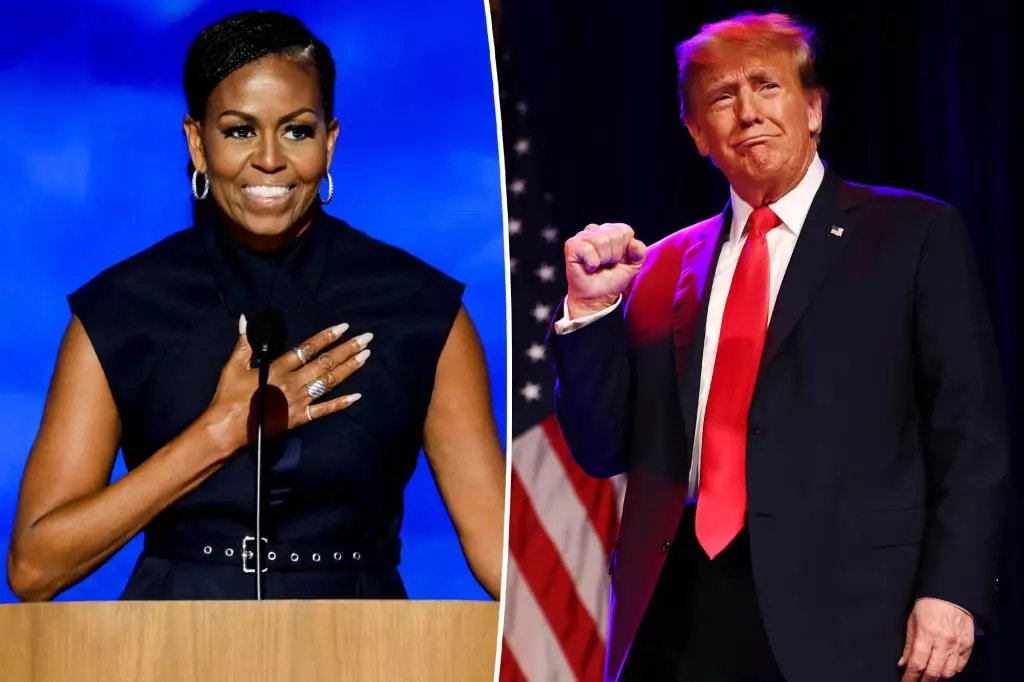The inauguration of a new president in the United States is a momentous occasion, traditionally characterized by unity and a peaceful transition of power. However, Michelle Obama’s decision to skip Donald Trump’s inauguration in January 2017 starkly differentiated her from the actions of her husband, former President Barack Obama, who chose to be present. This decision can be interpreted as not merely a personal choice but as a public statement that highlights deep political fractures in contemporary America.
Michelle Obama’s absence at Trump’s inauguration was more than just a sign of personal animosity; it was a deliberate, if silent, protest. As a well-respected figure who had previously shown graciousness at Trump’s inauguration, her choice to stay away sends a clear message. Numerous reports indicated that she preferred an “extended holiday vacation” on the picturesque beaches of Hawaii rather than engaging in a ceremony that she felt did not merit her participation. The Office of Barack and Michelle Obama officially announced her absence, indicating that it was not a last-minute decision but one made with intent.
The commentary from insiders suggested that Michelle Obama’s absence “speaks volumes.” Her earlier reluctance to participate in events surrounding Trump’s presidency after he repeatedly engaged in racially charged rhetoric, particularly through the birther movement targeting her husband, painted a vivid picture of her discontent. Attending the inauguration of a president who had so vocally opposed her family was not an option she deemed acceptable.
Michelle Obama’s strategy of protest can be understood in a broader societal context. Throughout her public life, she has expressed her thoughts on racial dynamics in America, often framing her experiences as a black woman married to a black man in the White House. In her speech at the Democratic National Convention in August 2016, she articulated the danger of normalizing rhetoric that perpetuates fear and division among communities. Her pointed criticism of Trump’s attitudes towards her family and those who share her racial identity culminated in her decision to remain absent from his inauguration.
By refraining from participation, she aligned herself with a sentiment shared by many in her community. Her absence was not just a personal grievance but an emblem of the resistance against what she and others saw as retrogressive leadership. Michelle had made it clear: she would not normalize a presidency born out of divisive and derogatory rhetoric.
While it is customary for former First Ladies to attend the inauguration of their successors, Michelle Obama’s choice reflects a significant departure from this long-standing tradition. Subsequent former First Ladies, regardless of personal political beliefs, have typically set aside their differences for the sake of unity. However, Michelle’s decisions showcase the changing landscape of American politics, wherein personal integrity and political identity increasingly take precedence over political theater.
Additionally, her absence stands in contrast to the later events following the January 6 Capitol riots, where Donald and Melania Trump similarly abstained from attending President Joe Biden’s inauguration. This pattern reflects a broader trend in contemporary politics where divisions are becoming entrenched, and public displays of civility are increasingly rare.
In retrospect, Michelle Obama’s choice to skip Donald Trump’s inauguration can be regarded as part of a larger narrative of resistance that continues to resonate with many Americans today. Her absence serves not only as a personal statement but also as a reflection of the prevailing sentiments within a significant portion of the electorate who continue to grapple with the implications of Trump’s presidency.
In her role as a public figure, Michelle Obama has exemplified how actions can convey profound political messages far beyond words alone. Her decision not to attend a ceremony that she felt was antithetical to her values underscores the importance of standing by one’s principles in defiance of prevailing political norms. As the political climate evolves, such choices may serve as powerful reminders of the ongoing struggle for equity and justice in America, a struggle that Michelle Obama, with her distinctive voice, continues to embody.

